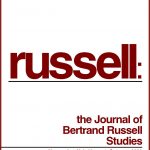Home » Posts tagged 'W. Lutosławski' (Page 3)
Tag Archives: W. Lutosławski
Censorship against Plato Scholars and Plato Himself

A volume on various aspects of relations between censorship, politics and oppression was published in 2018 by Gdańsk University Press. The book was a result of an international conference which took place in Gdańsk in 2017.
A paper by T. Mróz, included in this collective volume, discusses three cases of censorship on works of Polish Plato scholars who were active in three various periods of Polish history. First, the title of W. Lutosławski’s book on Plato was shortened by Imperial Russian authorities in Warsaw, they removed the word “socialism” from the title of his book on Plato. Its final version was then reduced to “Plato as the Creator of Idealism”.
S. Lisiecki, in turn, translated dialogues and wrote extensive introductions to them, but only his Republic saw the light of day in the interwar period, while all the remaining dialogues were left unpublished (but some of them, fortunately, will be published this year!). His leaving the clergy and Roman Catholic church might have been one of the reasons of his difficult situation in Polish academia.
Finally, W. Witwicki’s translation of the Republic with his commentaries appeared in print in 1948. After his death, the second edition was published in 1958, but some of his ironic and critical remarks on totalitarian system were removed.
Paper by T. Mróz can be downloaded from the University’s repository here.
Polish historians of Greek philosophy and their journeys to Athens

It comes as no surprise that experts in Greek philosophy and literature, classic scholars, or historians of the ancient world ache to visit the monuments of ancient history and to touch the relics of the Greek past. Many scholars were able to fulfill this dream and to undertake a journey to visit Athens and dwell the streets to search for Socrates or to have a discussion with the spirit of Plato in Academic garden.
Such journeys resulted very frequently in books or papers, memoirs or historical guides, that included their authors’ noble hopes and high expectations, but also their disappointments and grievances that Greek and Athenian reality at the turn of the 20th century could not meet their image of classical beauty and spiritual harmony.
In his paper in Polish, T. Mróz presented the works of four Polish authors who were experts in Greek literature and philosophy, who published extensively on this subject and who were sufficiently wealthy to travel to Greece, and to Athens in particular. In chronological order of their journeys, they are: Wojciech Dzieduszycki, Wincenty Lutosławski, Tadeusz Sinko and Władysław Witwicki. Their journeys took place between 1874 and 1937.
The paper can be downloaded here, and “Civitas” table of contents is here in English and here in Polish.
Lewis Campbell and his Plato

A paper on Lewis Campbell (1830-1908), who was an iconic figure of St Andrews and Scottish Platonism, appeared in a collection of papers from an International Society for Neoplatonic Studies annual conference in Olomouc in 2017. The volume was published in 2019 and includes papers on ancient, mediaeval and modern interpretations of Platonism (contents of the book on the Prometheus Trust website). In his paper T. Mróz examined the history of the most significant works by Campbell, his studies and editions of the dialogues, and attempted to present the consequences of his conclusions for interpreting Plato’s philosophy.
The paper is free to download from the University’s repository here.
Lutosławski on Russell’s Plato

A paper by Tomasz Mróz titled Letters of Bertrand Russell and Wincenty Lutosławski on Immortality, Matter and Plato was published in “Russell. The Journal of Bertrand Russell Studies” (1, vol. 40, 2020, pp. 27-42; DOI: https://doi.org/10.15173/russell.v40i1.4417).
The paper presents letters between Wincenty Lutosławski and Bertrand Russell, but what seems to be the most interesting regarding AΦR are the post-war letters on Russell’s History of Western Philosophy, for despite their different philosophical positions, Lutosławski’s opinion on this work as a whole was favourable, in particular the chapters on Plato. Such an assessment was the exception rather than the rule for that book, and knowing Lutosławski’s general recognition in Platonic studies, Russell forwarded the letter to his publisher.
Full text can be downloaded here, from the journal’s website.
Recent commentaries